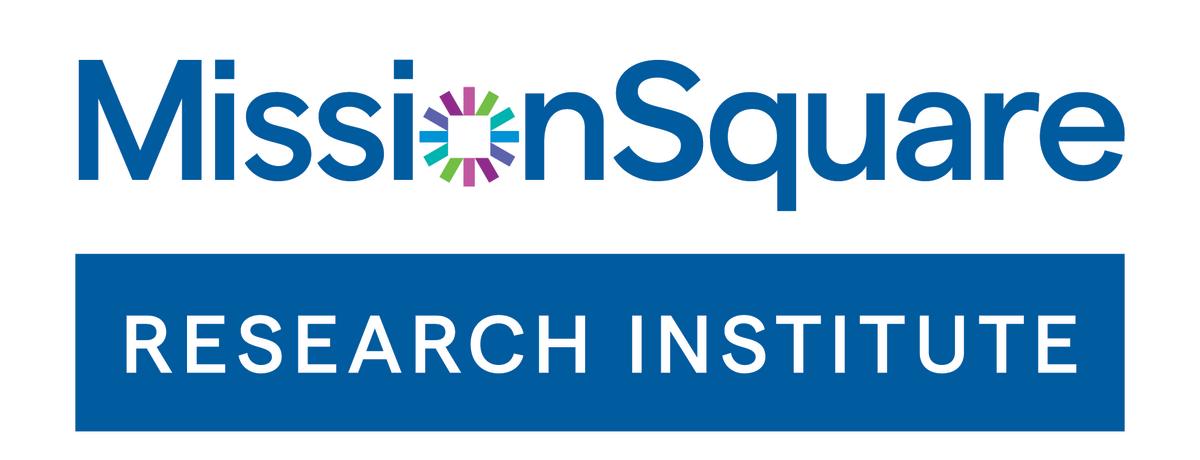New Report Highlights Financial Challenges for Women in Public Sector Jobs

Gender Wage Gap, Student Loan Debt, and Caregiving Demands Impact Financial Wellbeing
WASHINGTON, D.C., Sept. 30, 2024 (GLOBE NEWSWIRE) — The overall financial wellbeing of women working in state and local government is mixed, with both positive indicators and troubling challenges according to a new report from MissionSquare Research Institute. Most female public employees have access to retirement plans and stay at their jobs longer, which tends to improve retirement outcomes. However, women in the public sector continue to earn substantially less than men and have more debt. Also, women take longer to repay debt than men, and some of them have difficulty paying their monthly bills.
These findings are detailed in a new research report, Financial Wellbeing of Women in Government: Indicators, Contributing Factors, and Workforce Considerations. This report explores how financial wellbeing differs between men and women in the public sector, the challenges women face, and opportunities for state and local governments to help female workers improve their financial wellness.
“The data indicate that there is work to be done when it comes to the financial wellbeing of women who work for state and local governments,” said Zhikun Liu, Ph.D., CFP®, MissionSquare Research Institute Vice President, Head of Research. “The good news is that state and local governments typically offer robust retirement benefits, which bolsters women’s financial wellbeing in retirement. But persistent challenges like lower wages, higher debt, and caregiving responsibilities can create day-to-day financial burdens for many public sector female employees. Our report offers several pragmatic steps for policymakers to consider that can help shore up the financial wellbeing of women who serve their communities.”
The key findings of this report about women in the public sector are as follows:
-
Retirement Plan Access and Contributions: Women generally have less access to and contribute less to retirement plans compared to men.
-
Wage Disparity: On average, women earn less than their male counterparts.
-
Education and Debt: Despite being well-educated, many women carry substantial student loan debt.
-
Financial Struggles: A significant number of women face difficulties in paying their current expenses.
-
Career Constraints: Women often experience lower financial wellbeing due to shorter careers influenced by familial responsibilities and persistent glass ceilings and walls.
The report also outlines several programs that state and local governments could consider to enhance the financial wellbeing of women working in the public sector, including:
-
Offering financial literacy programs
-
Increasing retirement savings levels and investment knowledge
-
Providing emergency savings vehicles
-
Allowing remote work and flexible schedules
-
Implementing student loan forgiveness programs
-
Providing childcare subsidies and paid family leave
-
Establishing mentorship programs
Many governments have already adopted some of these programs but could consider reforms to further improve financial security for women. Some ideas may require additional funding but could be cost-effective in reducing attrition and enhancing job satisfaction and financial wellbeing.
This report integrates data and findings from multiple sources of academic and practitioner-oriented research to provide an overview of the financial condition of female public employees in the United States. The cited studies and figures are supplemented by specific financial and demographic data from the U.S. Census Bureau’s 2022 Current Population Survey (CPS) for those classified as state and local workers.
About MissionSquare Research Institute
MissionSquare Research Institute promotes excellence in state and local government and other public service organizations to attract and retain talented employees. The organization identifies leading practices and conducts research on retirement plans, health and wellness benefits, workforce demographics and skill set needs, labor force development, and topics facing the not-for-profit industry and education sector. MissionSquare Research Institute brings together leaders and respected researchers. More information and access to research and publications are available here.
About MissionSquare Retirement
Since our founding in 1972, MissionSquare Retirement has been dedicated to simplifying the path to retirement security for public service employees. As a mission-based, financial services company, we manage and administer over $80.5 billion in assets.* Our commitment to delivering results-oriented retirement plans, education, investments, and personalized advice sets us apart. Explore how we enable public service workers to build a secure financial future. For more information, visit www.missionsq.org or follow the company on Facebook, LinkedIn, and X.
*As of August 31, 2024. Includes 457(b), 401(k), 403(b), Retirement Health Savings (RHS) plans, Employer Investment Program (EIP) plans, affiliated IRAs, and investment-only assets.
CONTACT: Kelly Kenneally MissionSquare Research Institute 202-256-1445 media@missionsq.org
Related
A top recruiter says sports marketing roles are hot right…
Jobs are opening up in the sports industry as teams expand and money flows into the industry.Excel Search &
Public employees and the private job market: Where will fired…
Fired federal workers are looking at what their futures hold. One question that's come up: Can they find similar salaries and benefits in the private sector?
Mortgage and refinance rates today, March 8, 2025: Rates fall…
After two days of increases, mortgage rates are back down again today. According to Zillow, the average 30-year fixed rate has decreased by four basis points t
U.S. economy adds jobs as federal layoffs and rising unemployment…
Julia Coronado: I think it's too early to say that the U.S. is heading to a recession. Certainly, we have seen the U.S. just continue t










